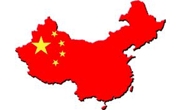Government/Policy

August 13, 2019
Trump's Tariffs on China Face Pushback
Written by Tim Triplett
Tariffs on some of the $300 billion in Chinese goods due to take effect on Sept. 1 have been pushed back until Dec. 15, and some items are likely to be removed from the tariff list entirely, as the Trump administration faces opposition from U.S. companies that claim the duties are hurting their businesses, The Wall Street Journal reported today.
Tariffs Hurt the Heartland – a national campaign opposed to the tariffs – is supported by many such companies in retail, tech, manufacturing and agriculture. American businesses and consumers paid $6 billion in tariffs in June 2019, one of the highest tariffed months in U.S. history, the group reported Aug. 7, citing Census Bureau data. The administration raised tariffs on $200 billion of Chinese goods from 10 to 25 percent in May.
It’s not the Chinese, but rather American businesses and consumers, that ultimately must pay the tariffs, the trade group argues. In total, American taxpayers have paid over $27 billion in extra import tariffs from the beginning of the trade war in 2018 through June of this year. Nearly 75 percent of those tariffs are due to the China 301 tariff actions. In fact, June saw a marked increase in tariff totals despite the fact that steel and aluminum tariffs on Canada and Mexico were removed.
“Americans are already paying record-high tariffs, and the biggest hit to consumers is still to come on Sept. 1,” said Tariffs Hurt the Heartland spokesman Jonathan Gold in a statement Aug. 7. “Taxing hardworking Americans isn’t doing a thing to address China’s trade abuses. Instead, these tariffs are costing American jobs, raising prices, hurting farmers and derailing U.S. economic growth. We continue to urge the administration to change course, and we call on Congress to get off the sidelines and take back its legislative authority on trade.”
For more information and to view the group’s “Tariff Tracker,” visit tariffshurt.com.







